We immediately
entered the
Stephen
Foster Folk Culture Center State Park. This park honors the
music composer,
Stephen Foster, who immortalized the Suwannee River in his song "
Old
Folks At Home".
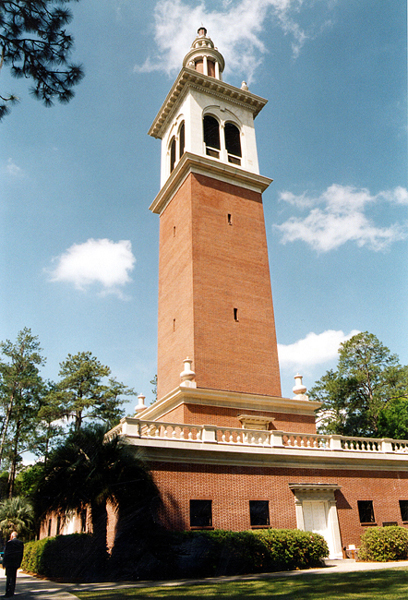 |
The bell tower plays some of Stephen
Foster's songs and has a museum with
displays of his pianos, sheet music, and
dioramas depicting the stories behind
his songs.
(click on this and the following pictures
to enlarge them.)
|
The water level is really low, so we were able to see at lot of stuff
that is usually below the water. Some of the limestone has
been eaten away and looks a lot like creepy skulls or skeletons.
We could even see where the roots of the trees growing on
the riverbank extended under ground.
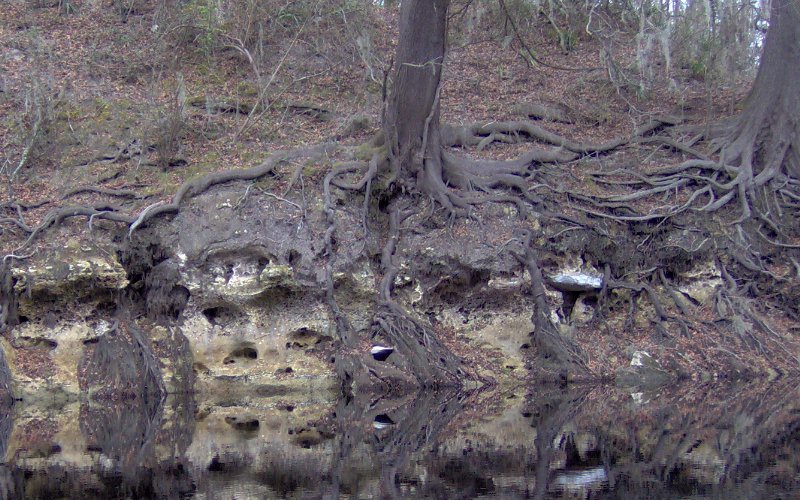
|

|
Tree roots
are exposed by the low water and erosion.
|
Some of the
rocks looked like skulls or skeletons
|
We saw a lot of wildlife, including an
alligator, several
turtles,
river
otters, herons, hawks, and other birds.

|
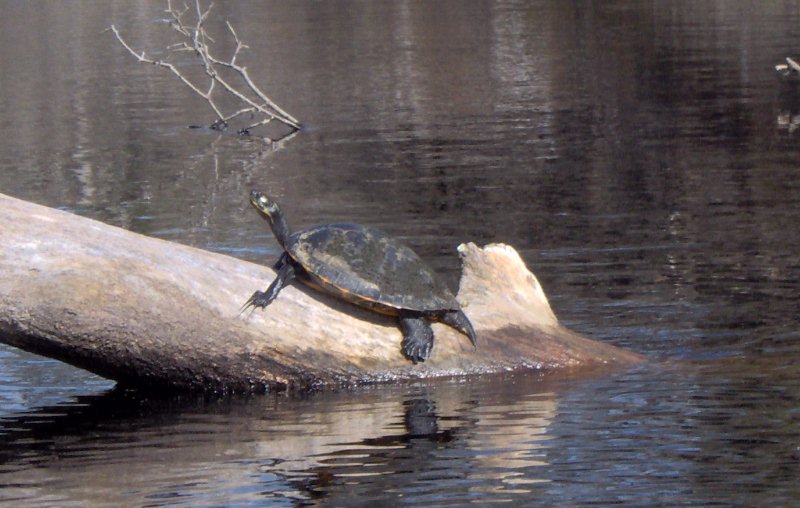
|
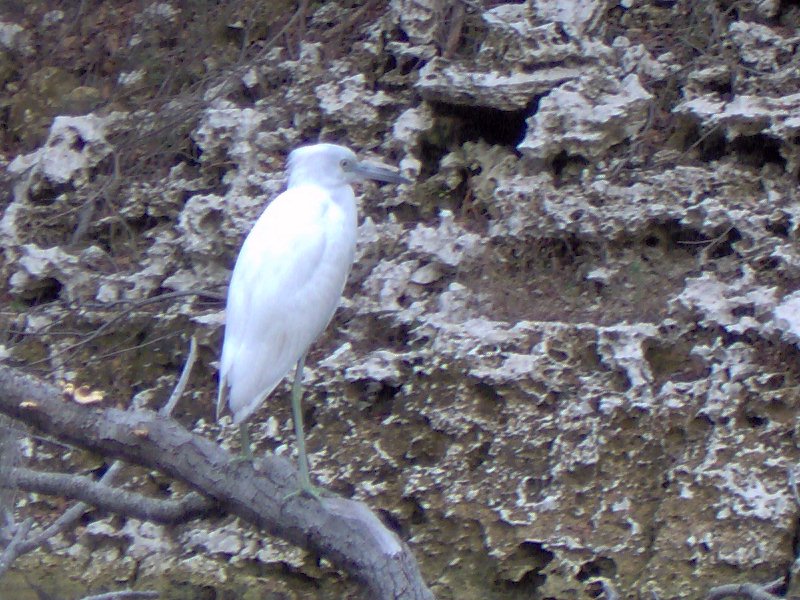
|
This
alligator, about 3 feet long, was
sunning on the bank. It ignored us.
|
Turtles
frequently sun themselves
on rocks or logs.
|
This egret
waited until we got
close then flew away.
|
White Springs is the beginning of the
Suwannee
River Wilderness Trail, which runs 170 miles down to the Gulf of
Mexico. It is
like a long narrow park with lots of outdoor stuff to do. There
are several campgrounds along the way. We spent the first night
at the
Woods
Ferry River Camp. Although there are screened shelters, we
chose to stay at the primitive campsite, which actually
has several conveniences, including a picnic table, grill, and fire
ring.
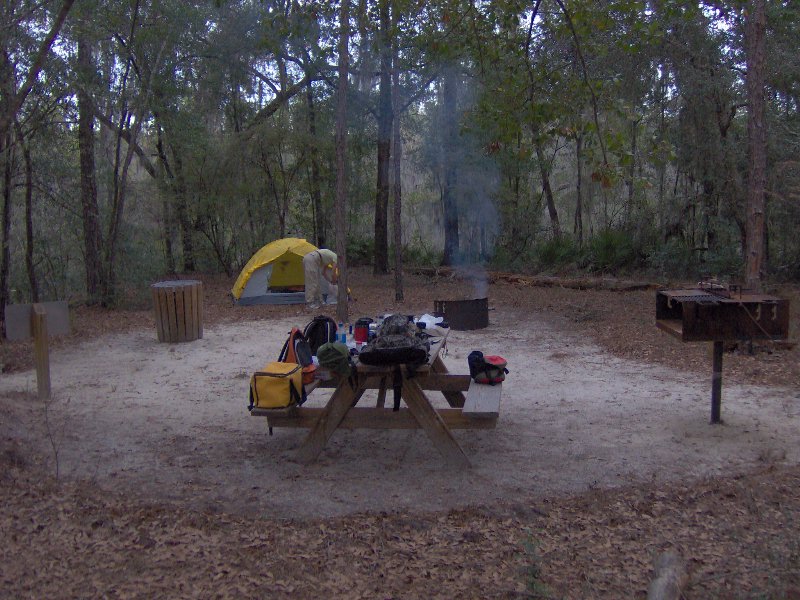
|
This was our first night's campsite at the Woods
Ferry River Camp "primitive" campsite.
|
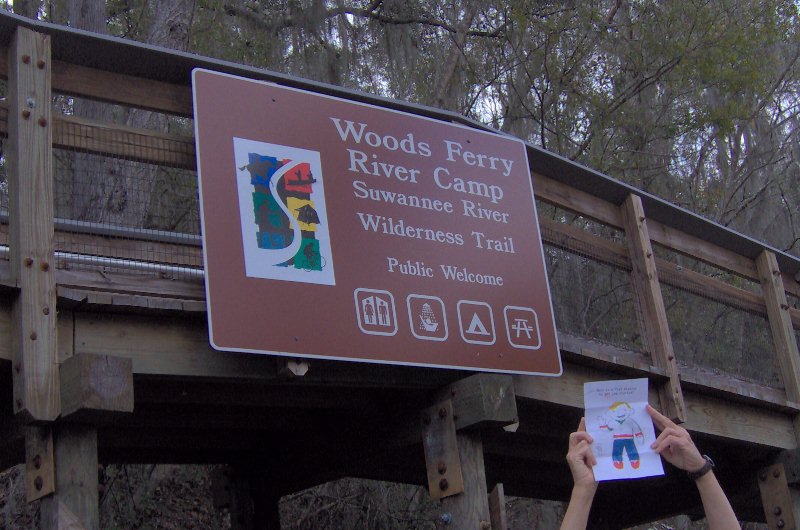
|
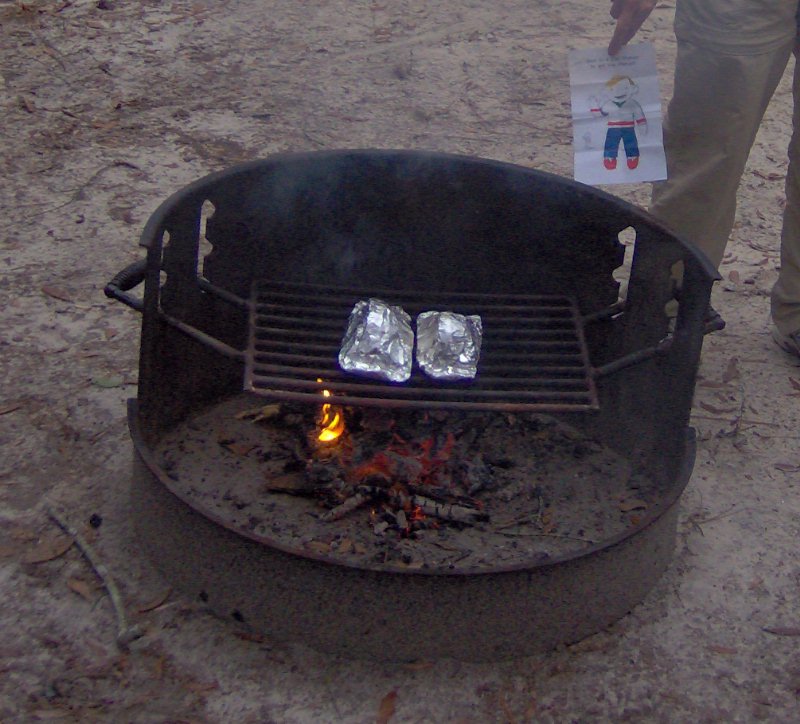
|
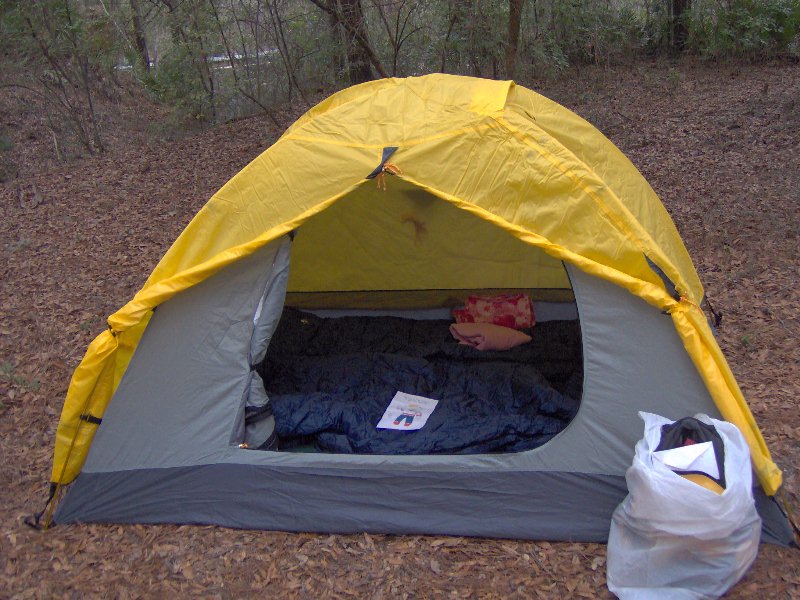
|
The
landing at Woods Ferry River
Camp has a long walkway up from
the river.
|
The
campground provided a picnic
table, grill, and fire ring. Dinner is
being cooked over the fire.
|
The tent
was set up on a nice soft
bed of leaves.
|
The next morning we didn't bother with the fire. With the help of
a
Jet Boil stove we enjoyed
fresh hot
french
press coffee,
hot cereal fortified with dried fruit and nuts, and fresh oranges..

|
Making coffee with a Jet Boil and French Press
|
Back on the river again, we continued down stream past the
Spirit of the Suwannee Music Park.
This is a private park and
campground that is a popular place to launch canoes or camp for the
night. They also have frequent country music concerts.
We had originally planned on ending our trip here, but since we were so
early, we hadn't even spent our second night out, we
decided to continue on down the river.

The Spirit of the Suwannee Music Park has a nice launching ramp for
canoes
Since the river was so low, we frequently had to avoid sandbars.
They were hard to see and sometimes we got stuck. It
took a lot of pushing and paddling to get off them. We decided
that one would be a good place to stop for a picnic lunch..
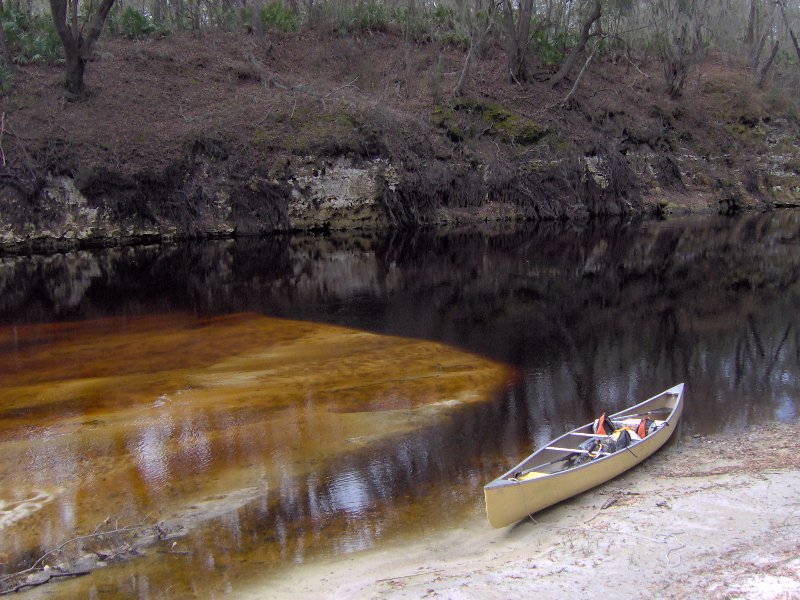
|
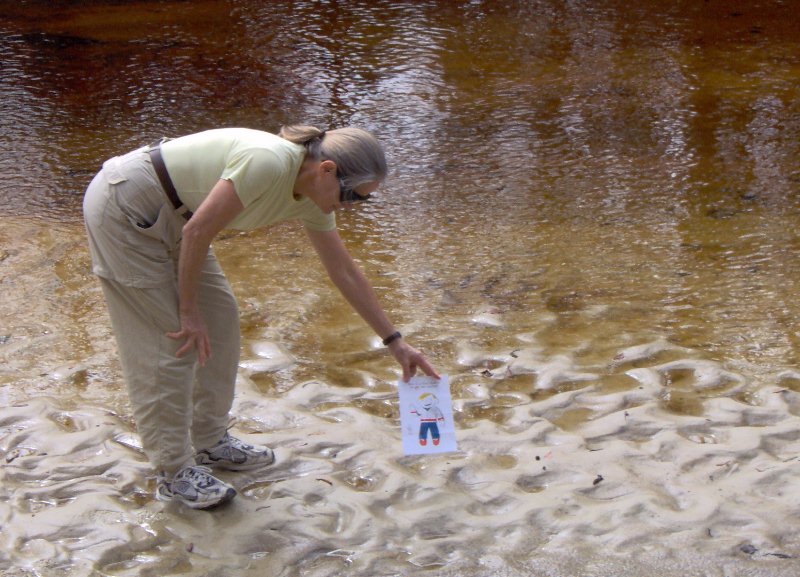
|
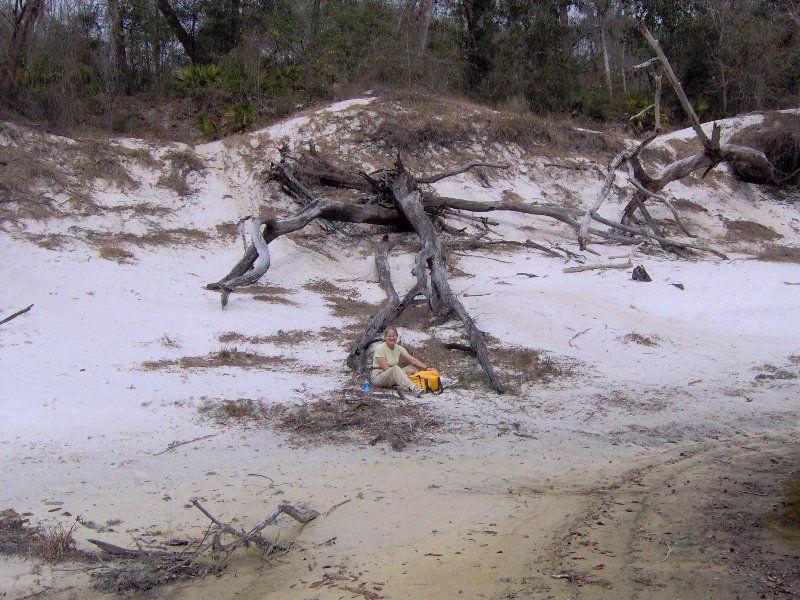
|
Sandbars
sometimes made it
hard to paddle.
|
I took a
closer look at
the sand bar. |
This looked
like a good place
for a picnic lunch. |
One of the things I learned was how the flow of the water shapes the
river bank. When the river curves, the water has to
go faster around the outside of the curve, and slower on the inside of
the curve. This erodes the outside and causes steep
banks, while the slower water on the inside of the curve allows
sediments to settle out of the water and form sand dunes.
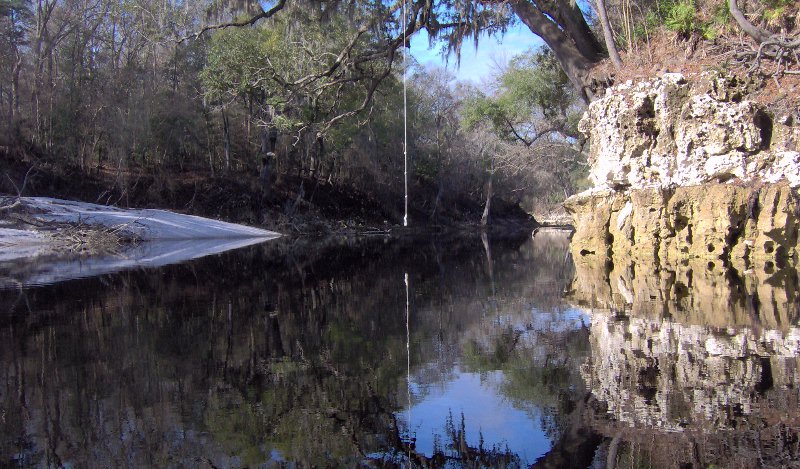
|
The outside bank, on the right,
is a steep
rocky bank, while the inside bank, on the
left, has a sloping sand bank.
|
These sand banks also make excellent campsites. There are so many
of them that there is always a
convenient place to stop for the night. So we took advantage of
that the second night and camped
on a sand bank.
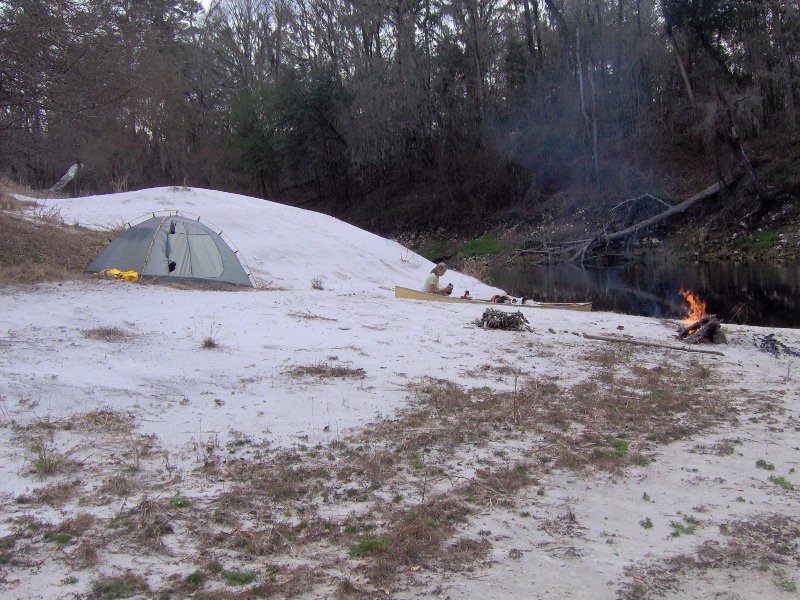
|

|
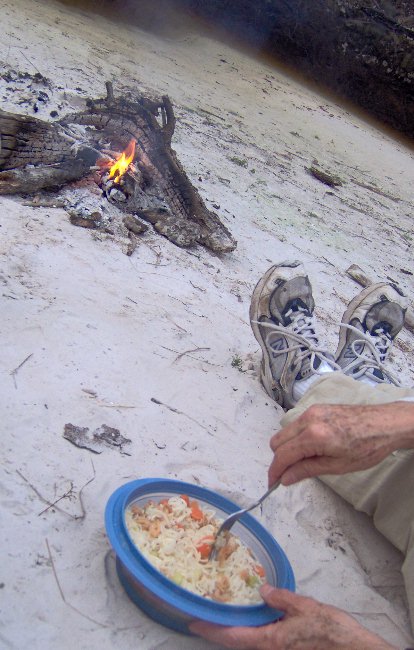
|
The second
night we camped on
a sandy riverbank.
|
I helped
tend the fire, but I was
careful not to get too close. We
built it on the sand since there
was no fire ring to use.
|
Dinner was
made
with the Jet Boil
and dehydrated
noodles and
vegetables.
|
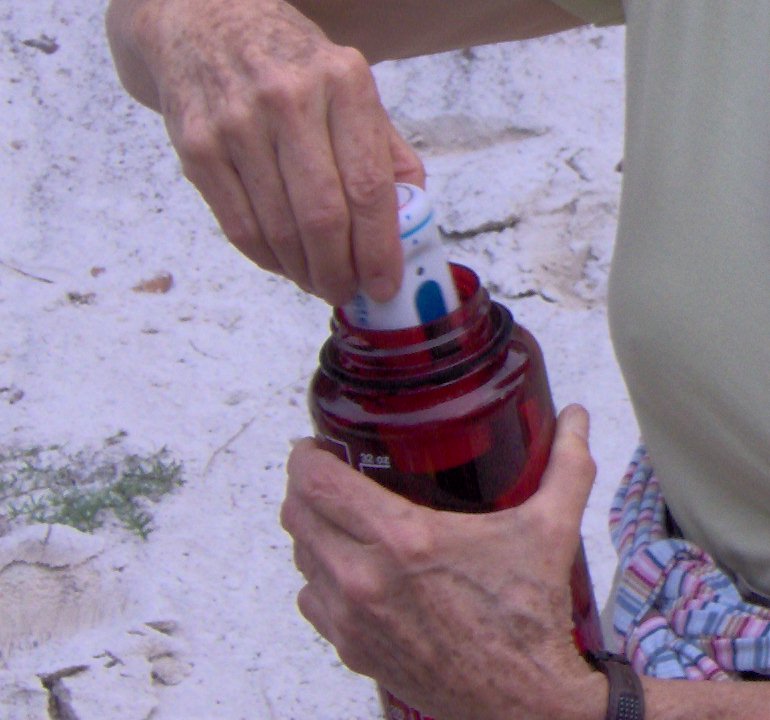
|
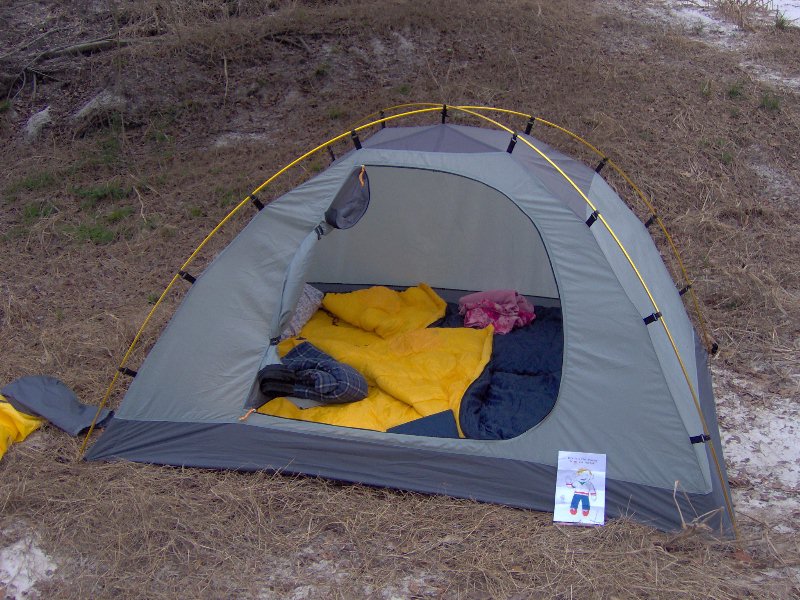 |
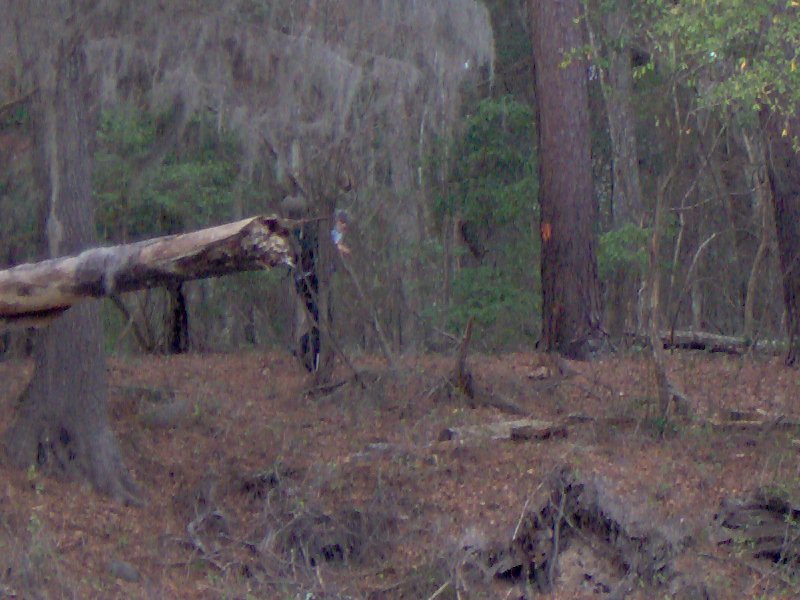 |
We used a SteriPEN to purify the
river water for making dinner and
coffee.
|
I helped to
set up the tent. We
have not yet put on the yellow
rain fly.
|
The Florida Trail,
marked with orange
blazes painted on trees, follows the
river bank through this section of
Florida. We watched a Boy Scout
Troop hike by.
|
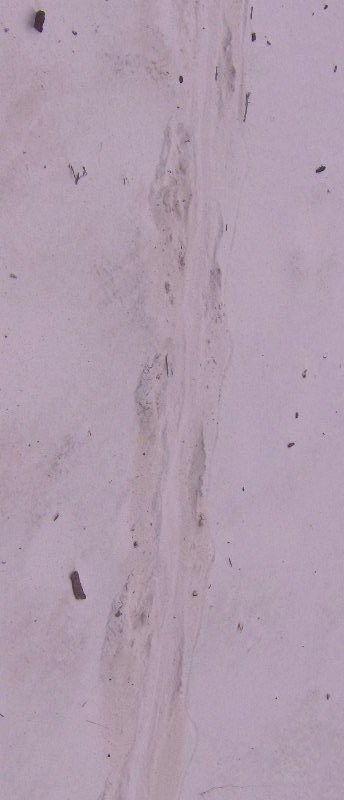
|
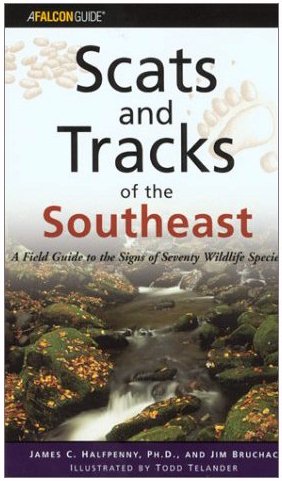
|
While
exploring the sand dune, we
came upon a set of tracks. They ended
at a hole that an animal had dug.
|
We looked
them up in our guide
book
and concluded that a snapping turtle had
climbed ashore to lay her eggs in the sand.
|
We went to bed that night, listening to owls hooting, fish jumping, and
who knows what else was afoot in the wild.
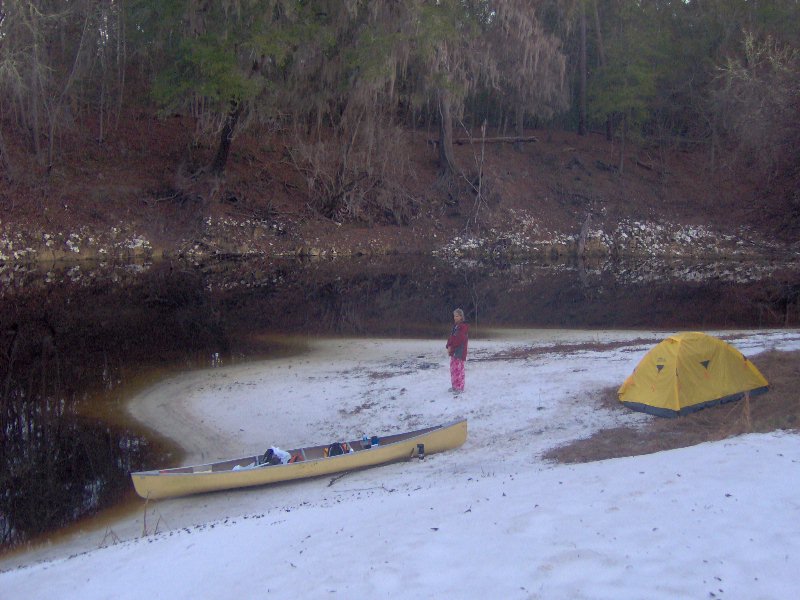
|
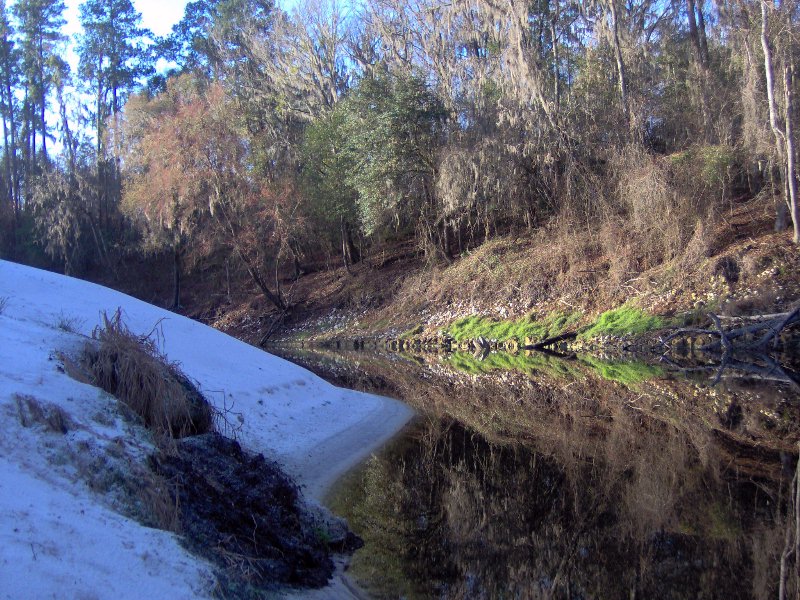
|
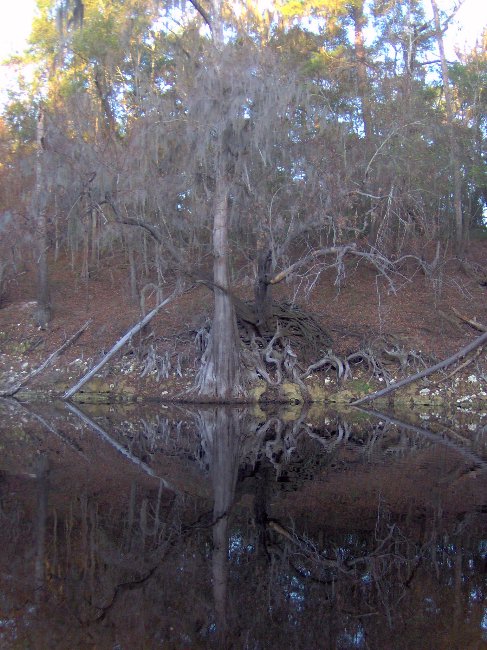
|
The morning
was chilly for Florida,
but mild by Michigan standards.
|
This is the
morning view of our
river bend.
|
The
reflection of this
tree across the river
has an eerie look.
|

|
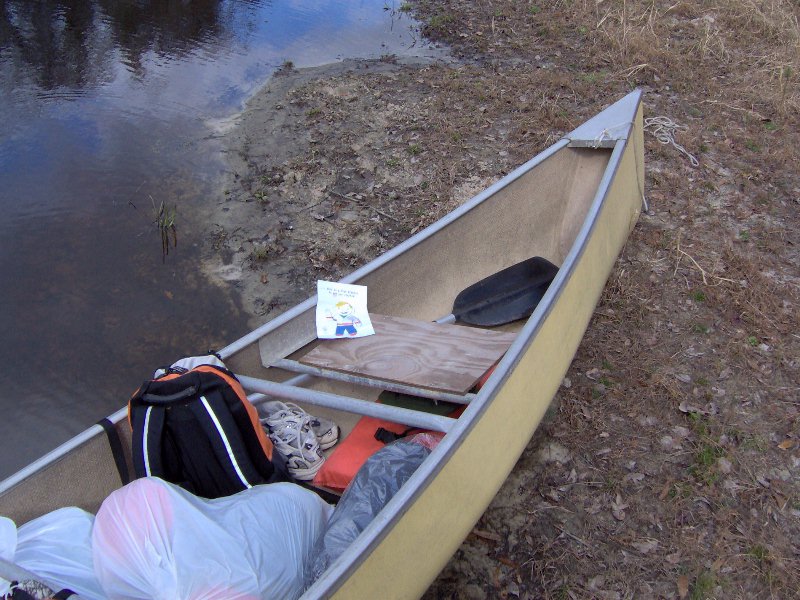
|
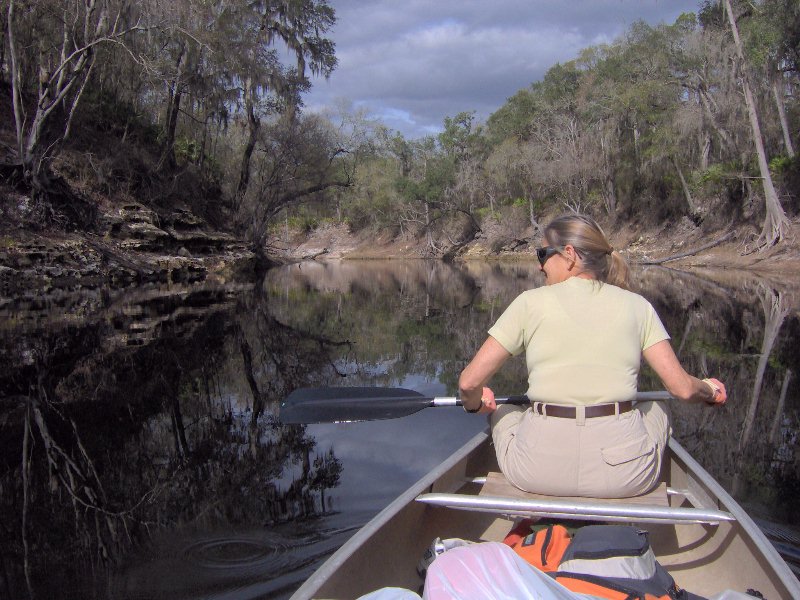
|
While
striking the tent, we discovered
we'd had a visitor.
|
Getting
ready to launch the canoe
on day 3.
|
Paddling
down the Suwannee
River.
|
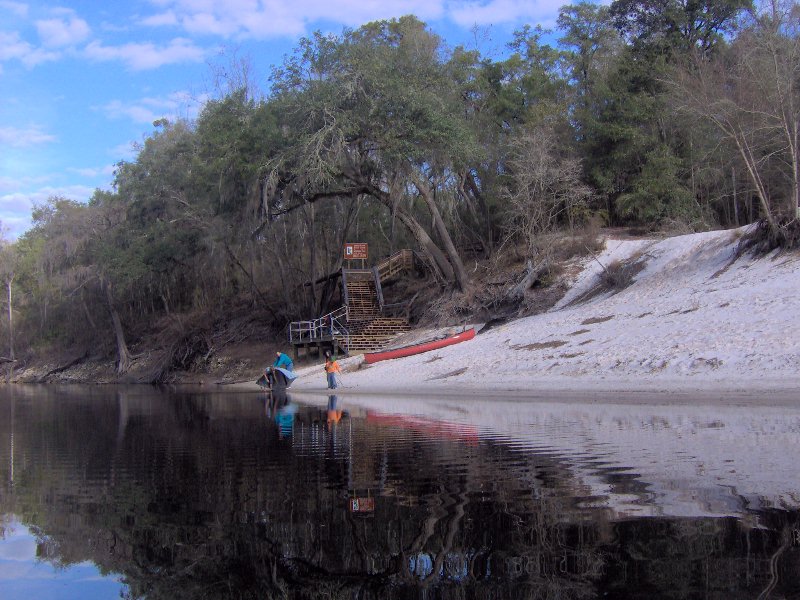
|
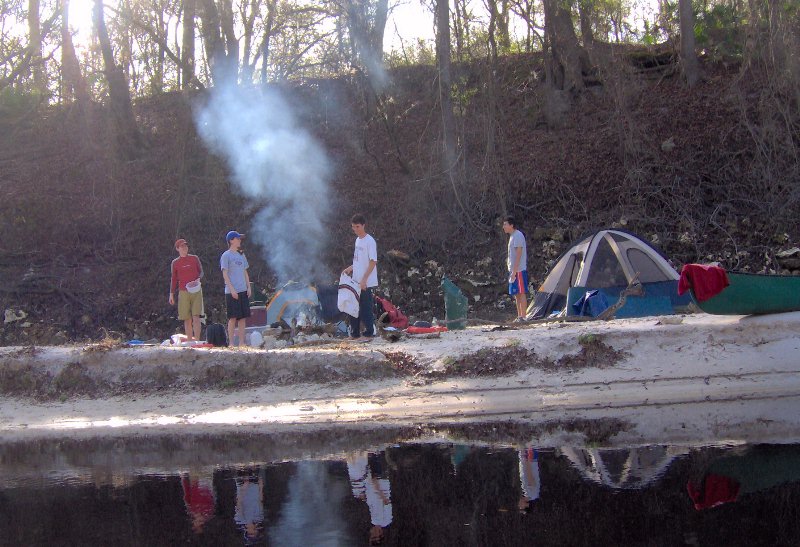
|
Not far down
the river, we passed the Holton
Creek River Camp, for those who want a little
more luxury in their camping.
|
Still
further down, we passed the camp of a group
of University of Florida
students. They also chose
to camp in the wild of the river bank.
|
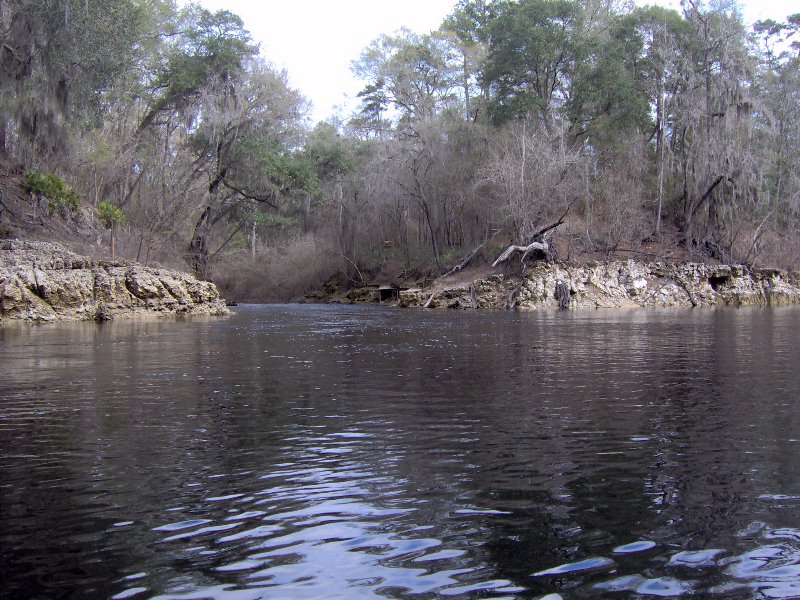
|

|
When we saw
the Alapaha River
flowing into the Suwannee, we
knew that our trip was almost
over. We were arriving at our
pull out point.
|
After
unloading the canoe and
laying out the gear to dry, I
helped take our last navigational
fix for the trip. We had traveled
35 miles down the river.
|
We had one last stop to make. The mother of my friend Morgan,
whom Sarah Marsh had met last summer in Colorado,
had helped us with land transportation, shuttling us and
our car to make the trip possible. She picked us up at the
end of our trip and drove us back to the Spirit of the Suwannee Music
Park, where our car had been left.
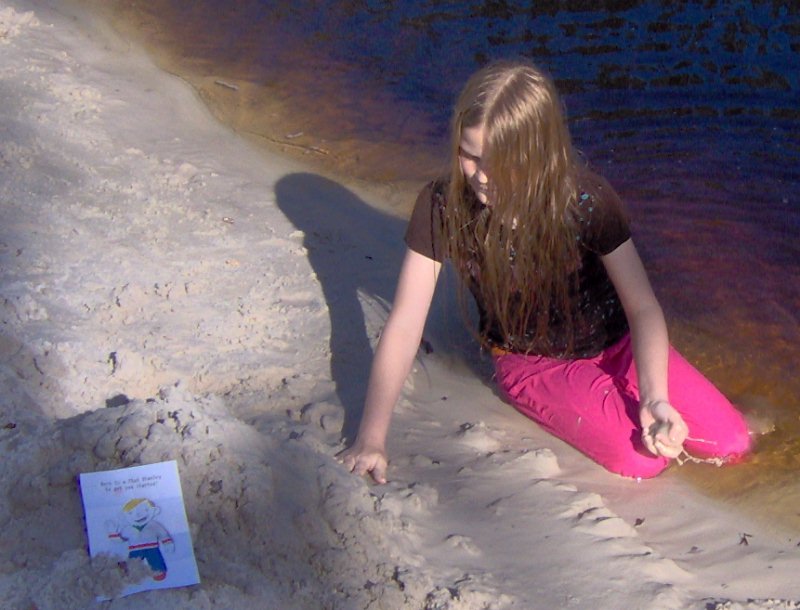
|

|
I got to
spend some time with Morgan
playing on th beach at the Spirit of the
Suwannee Music Park.
|
This is
Morgan's family, he cousin Shyanne,
brother Mason, and her mother, Carrina.
|
Well, that wraps it up. I had a great time, and am looking
forward to more adventures in the South. I'll write as I do more.
Stanley
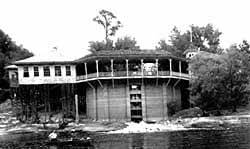






 The Spirit of the Suwannee Music Park has a nice launching ramp for
canoes
The Spirit of the Suwannee Music Park has a nice launching ramp for
canoes















